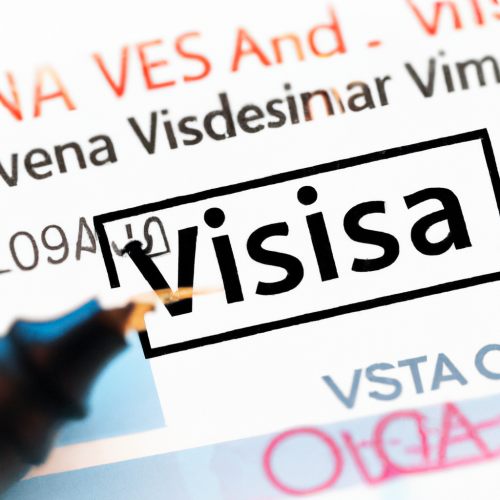Are you considering relocating to Germany and seeking a comprehensive guide to ensure a smooth transition? Look no further. In this article, we will provide you with valuable information and practical tips to help you navigate the various aspects of relocating to Germany. From understanding the visa process and finding accommodation to getting acquainted with the local culture and essential services, we aim to equip you with the knowledge necessary for a successful move to one of Europe’s most vibrant and influential countries. Whether you’re a student, professional, or retiree, this guide will serve as your trusted resource, offering insights into everything you need to know before taking the leap towards your new life in Germany.
Visa Requirements: Navigating the Process to Relocate to Germany
Relocating to Germany can be an exciting adventure, but understanding the visa requirements is crucial before embarking on your journey. Germany offers a variety of visa options depending on the purpose and duration of your stay. To ensure a smooth relocation process, here is a comprehensive guide to navigating the visa requirements.
1. Determine the type of visa you need:
Germany offers various types of visas, including work visas, student visas, and family reunification visas. Identify the visa category that best suits your purpose of relocation. Each visa has specific requirements and conditions, so it’s essential to gather the necessary information to proceed with the application process.
2. Collect the required documents:
Prepare all the necessary documents to support your visa application. This typically includes a valid passport, proof of health insurance, financial statements, a letter of motivation, and sometimes a sponsorship letter. Keep in mind that these requirements may vary depending on the visa type, so double-check the specific documentation needed for your particular situation.
3. Complete the visa application process:
Once you have gathered all the required documents, it’s time to begin the visa application process. Visit the German embassy or consulate in your home country or check their website for detailed instructions and online application forms. Make sure to fill out the forms accurately and provide all necessary information. Some visa applications also require an interview, so be prepared for that possibility.
Remember, the visa process can be complex and time-consuming, so it’s advisable to start well in advance to avoid any last-minute complications. It’s also a good idea to consult with an immigration lawyer or seek assistance from a relocation service to navigate the process smoothly. Planning ahead and staying organized will significantly increase your chances of successfully relocating to Germany.

Finding Housing: Tips and Recommendations for your New Home in Germany
Tips and Recommendations for Finding Housing in Germany
Searching for housing in a new country can be a daunting task, but with some helpful tips and recommendations, you’ll be well-equipped to find your perfect home in Germany. Whether you’re moving to one of the bustling cities or the serene countryside, here are some key things to keep in mind:
- Start your search early: The housing market in Germany can be competitive, so it’s advisable to begin your search as soon as possible. This will give you ample time to explore the different neighborhoods, compare prices, and find the best fit for your needs.
- Utilize online resources: Fortunately, there are numerous websites and online platforms dedicated to helping individuals find rental properties in Germany. Some popular options include ImmobilienScout24, Immowelt, and WG-Gesucht.
- Consider your budget: Before diving into your search, it’s important to determine your budget and stick to it. Remember to factor in not only the rent but also additional costs such as utilities, maintenance fees, and insurance.
- Understand the local rental market: Each city in Germany may have different rental norms and regulations. In some areas, you may need to provide specific documents or references when applying for a rental property. Familiarize yourself with these requirements to streamline the application process.
- Engage with local communities: Joining expat forums or social media groups can be incredibly helpful in networking with fellow expats or locals who may have valuable insights into the housing market. They can provide firsthand recommendations and advice based on their own experiences.
- Consider a furnished apartment: If you are planning a shorter stay or simply prefer convenience, opt for a furnished apartment. This saves you the hassle of buying furniture and appliances and can make your transition to Germany smoother.
Remember, finding housing in Germany may require some patience and persistence. By following these tips and using the available resources, you’ll enhance your chances of finding the perfect home that suits your preferences and requirements.

Understanding Healthcare: A Comprehensive Guide to Germany’s Healthcare System
In this comprehensive guide, we will walk you through Germany’s healthcare system, explaining its key features and helping you understand how it works. From its universal coverage to its emphasis on preventive care, Germany’s healthcare system is known for its efficiency and high quality of care. So let’s dive into the various aspects of healthcare in Germany to gain a better understanding of this well-regarded system.
1. Universal Coverage: In Germany, healthcare coverage is universal, meaning everyone is required to have health insurance. This ensures that anyone living in the country, whether German citizens or international residents, has equal access to healthcare services.
2. Health Insurance Options: Individuals in Germany have the option to choose between statutory health insurance (Gesetzliche Krankenversicherung) or private health insurance (Private Krankenversicherung). While most people are covered by statutory insurance, individuals above a certain income threshold or self-employed may opt for private insurance.
3. The Role of Sickness Funds: Statutory health insurance is managed by sickness funds (Krankenkassen), non-profit organizations that collect contributions from employers and employees. These funds cover the majority of the population and provide a wide range of healthcare services.
4. Access to Care: Germany’s healthcare system ensures prompt access to medical care. With a high number of medical professionals per capita, patients have a variety of options for receiving medical treatment, from general practitioners (Hausärzte) to specialized doctors (Fachärzte) and hospitals. Additionally, Germany places great emphasis on preventive care, offering regular check-ups and screenings to catch health issues early on.
By gaining a deeper understanding of Germany’s healthcare system, you’ll be better equipped to navigate the healthcare landscape in this country. Whether you are a resident or planning a visit to Germany, this guide will provide you with the knowledge you need to make informed decisions about your healthcare and ensure that you receive the best possible care.
Navigating German Culture: Insights and Recommendations for Expats
Living in a new culture can be both exciting and challenging, especially if you are an expat. To help you navigate German culture with ease, we have gathered some valuable insights and recommendations to make your transition smoother. These tips will not only help you adapt more quickly but also enable you to embrace and appreciate the rich traditions and customs that Germany has to offer.
Acknowledge Punctuality
Punctuality is highly valued in German culture. Whether it’s for work meetings, social gatherings, or even casual meetups, arriving on time is considered a sign of respect. Germans take their schedules seriously, so make sure to plan accordingly and aim to be early whenever possible. This simple gesture will be greatly appreciated by your German friends, colleagues, and acquaintances.
Educate Yourself on Beer Culture
Germany is renowned for its beer culture, and exploring it can be an enjoyable part of your expat experience. Familiarize yourself with the different types of beer and the regions where they originate. Attend local beer festivals (such as Oktoberfest) and beer gardens to immerse yourself in the lively atmosphere. Don’t forget to try traditional German beers like Pilsner, Hefeweizen, and Bock.
Learn Basic German Phrases
While many Germans speak English fluently, making an effort to learn basic German phrases can go a long way in building connections and bridging cultural gaps. Start with simple greetings, how to order food, or asking for directions. Locals will appreciate your attempts, and it can make your day-to-day interactions smoother and more enjoyable. Consider enrolling in a language course or utilizing language learning apps to enhance your German skills.
Work and Employment: Essential Information for Expatriates Moving to Germany
As you prepare to embark on your new journey in Germany, understanding the intricacies of the local work and employment landscape is crucial. Here, we provide you with essential information that will help you navigate the job market and ensure a smooth transition into the German workforce.
1. Work Culture: German work culture is known for its efficiency, punctuality, and emphasis on professionalism. It’s important to familiarize yourself with these cultural norms to ensure you integrate seamlessly into your new workplace. Germans value punctuality, so always arrive on time and meet deadlines promptly. Additionally, it’s common for colleagues to address each other by their last names, unless invited to do otherwise.
2. Finding a Job: The German job market offers a range of opportunities for expatriates. Start by exploring online job portals, such as Xing and LinkedIn, which cater to both domestic and international job seekers. Networking is also highly valued in Germany, so attending professional events, joining industry-specific groups, and establishing connections can significantly enhance your employment prospects.
3. Employment Documents: To work legally in Germany, you will need several essential employment documents, including a valid residence permit, a social security number (Sozialversicherungsnummer), and a tax identification number (Steuernummer). It is important to ensure that all your documents are in order before starting work.
4. Work Permits: Non-EU citizens are typically required to obtain a work permit to be eligible for employment in Germany. The process can vary depending on your qualifications, job offer, and duration of stay. It’s advisable to consult the German embassy or consulate in your home country for detailed information and guidance on the appropriate work permit for your circumstances.
By familiarizing yourself with the German work culture, job search strategies, and necessary employment documents, you are well-equipped to embark on a successful career in Germany. Remember to stay proactive, remain open to new opportunities, and embrace the exciting challenges that lie ahead. Good luck!
Education and Language: An Overview for Families Relocating to Germany
When relocating to Germany with your family, it is essential to understand the education system and the country’s language requirements. Here’s an overview to help you navigate through this exciting transition:
Educational System
Germany boasts a well-structured and highly-regarded educational system. From kindergarten to university, education is taken seriously, providing ample opportunities for your child’s academic growth. It’s worth noting that education in Germany is compulsory for children aged 6 to 15, with attendance mandatory at public or private schools. The curriculum is comprehensive and focuses on a broad range of subjects, prioritizing critical thinking and problem-solving skills.
Language Requirements
German is the primary language spoken in schools, and a solid understanding of the language is crucial for successful integration into the German education system. While some international schools offer curriculum in English, it’s advisable for non-German-speaking children to learn the language to fully immerse themselves in their new environment.
Here are a few key points to consider:
- German language courses for expat children are widely available and can support their language acquisition.
- Enrolling your child in German-language courses before arrival or upon arrival will significantly benefit their integration into the local education system.
- Learning German not only facilitates academic success but also enables your child to make friends and feel more included in their new community.
International Schools
If your family is more comfortable with an English-speaking curriculum, Germany has a variety of renowned international schools. These schools often offer the International Baccalaureate (IB) program or follow the curricula of other English-speaking countries. While the cost of attending international schools can be higher, they provide an excellent solution for expat families looking to maintain their children’s education in their mother tongue.
To Conclude
In conclusion, relocating to Germany can be an exciting and life-changing experience, but it also requires careful planning and preparation. From understanding the visa requirements to finding suitable accommodation, this comprehensive guide has provided you with essential information and insights into navigating the complexities of settling in this vibrant country.
Germany’s strong economy, high standard of living, and excellent healthcare and education systems make it an attractive destination for both professionals and families seeking new opportunities. However, it is important to keep in mind that each individual’s experience may vary, and cultural adjustments will undoubtedly play a role during the transition.
By understanding Germany’s unique customs, traditions, and bureaucracy, you can better equip yourself for a smoother and more successful relocation. The detailed guidelines on obtaining a visa, finding housing, opening a bank account, and navigating the healthcare system will serve as valuable resources to assist you in your journey.
Whether you are moving to Germany for work, study, or personal reasons, it is crucial to remain open-minded, adaptable, and patient. Building a support network, connecting with local communities, and immersing yourself in the language and culture will enhance your experience and facilitate integration into German society.
As you embark on this adventure, remember that embracing the challenges and opportunities that come with relocating to a new country will not only broaden your horizons but also enrich your life in countless ways. By utilizing the information provided in this comprehensive guide, you are now equipped with the knowledge and tools to embark on your journey to Germany with confidence.
We hope that this guide has been instrumental in your preparations, and we wish you all the best in your new chapter. May your relocation to Germany be a transformative and rewarding experience.





